




















As of November 29
GO NEW PLACES – Church Planting
166
As Illinois turns 200 in 2018, IBSA is seeking to engage at least 200 churches in each of these challenges. Is your church one of them? ENGAGE NEW PEOPLE
Goal: 200
MAKE
Not long ago, my wife, Beth, and I were discussing whether or not to try and attend a wedding to which we had been invited. It was a considerable distance from our home and required a couple of nights in a hotel, driving and meal expenses, and at least one vacation day.
Though we both wanted to go, and felt we should, I found myself asking, “I wonder if the couple would rather have the money that we would spend on travel as a wedding gift?”
192
DEVELOP NEW LEADERS – Leadership Development
119 156
Churches Churches Churches Churches
Total Participating Churches: 222
Read more about these challenges and register your church for one or more at IBSA.org/Pioneering, or contact IBSA’s John Carruthers at (217) 391-3110 or JohnCarruthers@IBSA.org.
Celebrating our state and Baptist work across two centuries
Chicago’s famed preacher D.L. Moody was a leading evangelical influencer in the 19th century. “Cities are the centers of influence,” he said. “Water runs downhill, and the highest hills in America are the great cities. If we can stir them we shall stir the whole country.”

the cooperative program
Giving by IBSA churches as of 11/30/18 $5,402,605
Budget Goal: $5,815,385
Received to date in 2017: $5,417,461
2018 Goal: $6.3 Million
Editor - Eric Reed
Managing Editor - Meredith Flynn
Graphic Designer - Kris Kell
Contributing Editor - Lisa Misner
Multimedia Journalist - Andrew Woodrow
Administrative Assistant - Leah Honnen
The general telephone number for IBSA is (217) 786-2600. For questions about subscriptions, articles, or upcoming events, contact the Illinois Baptist at (217) 391-3119 or IllinoisBaptist@IBSA.org

The Illinois Baptist is seeking news from IBSA churches. E-mail us at IllinoisBaptist@IBSA.org to tell us about special events and new ministry staff.


POSTMASTER: The Illinois Baptist is owned and published every three weeks by the Illinois Baptist State Association, 3085 Stevenson Drive, Springfield, Illinois 62703-4440. Subscriptions are free to Illinois Baptists. Subscribe online at IBSA.org.

It’s not the first time I’ve asked that kind of question, and it probably won’t be the last. I remember international missionaries once telling me that a church had spent $50,000 to send a large mission team halfway around the world to serve with them for a few days.
They were grateful for the help and encouraged by the fellowship. But they also shared with me candidly, “We couldn’t help but think how much more we could have accomplished here with $50,000 if they had stayed home and just sent the money.” Experiences like these underscore the sometimes difficult question, “How much is someone’s physical presence worth?” Or, to state it more casually and commonly, “Shall I go, or just send something?”
And of course, when the question presents itself at the time of someone’s death, it often has the additional pressure of urgency, since there is often little advance notice and little time to make a good decision about going. I still remember fondly and with great appreciation the people who traveled distances to attend my dad’s funeral. And I remember a funeral from almost 40 years ago that I still regret missing today.
How much is someone’s physical presence worth? It’s an excellent, spiritual question to ponder during this Advent season. Could Jesus have just “sent” the gift of salvation, without coming personally? Could he have dispatched someone else to the cross, or was it supremely, eternally important that he be there himself?


I think we miss something incredibly important if we celebrate salvation without celebrating incarnation. On that holy night when the Word became flesh and dwelt among us, he chose not just to be present with us, but to become one of us. Through Jesus, God entered in to our condition not just with sympathy, but with immeasurable sacrifice.
At Christmas, we celebrate God’s love and amazing grace in choosing to become human, in choosing to embrace mortality for the sake of our immortality. How much was the physical presence of Jesus worth? It was worth everything. It was worth our eternal lives.
By the way, eventually my wife and I did decide to attend that distant wedding. We decided to do so after remembering some of the older adults that traveled distances to attend our own wedding. We remembered wondering, at the time, why they went to such trouble. But now, decades later, we remember very few of their wedding gifts. But we still remember their presence.
There’s a worship song that says, in part, “I’ll never know how much it cost, to see my sins upon that cross.” That’s certainly true. And yet I wonder if we don’t reflect more on the gift of salvation than we do the very presence of “God with us” in the incarnation.
As great as the gift of salvation is, that gift is simply an expression of how much God loves us and is willing to sacrifice to be with us, both now on earth and throughout eternity in heaven. The value of his very presence eclipses even the value of his wonderful gift.
Nate Adams is executive director of the Illinois Baptist State Association. Respond at IllinoisBaptist@IBSA.org.
On the cover: The iconic barn is familiar to guests at Streator Baptist Camp, and is featured on the 2018 IBSA Christmas card.

We miss something if we celebrate salvation without celebrating incarnation.
Taylorville | Illinois Baptist Disaster Relief (IBDR) volunteers were in Taylorville the morning after an EF-3 tornado damaged hundreds of structures in the town 30 miles southeast of Springfield. The Dec. 1 storms, rare this late in the year, spawned a recordhigh number of tornados in December—at least 26—and affected several central Illinois communities. The most severe damage was in Christian County, where more than 20 people were injured.
Disaster Relief teams mobilized to Taylorville Sunday, with assessors working to evaluate needs and one chainsaw team already working to remove limbs felled by the storm. Volunteers quickly set up an Incident Command Center at the Christian County Fairgrounds, and teams moved into First Baptist Church, Edinburgh.
Three days after the tornado, the Disaster Relief response continued, with around 35 volunteers serving each day and chaplains ministering to homeowners. One Taylorville resident, Mark Sockel, heard the gospel from Disaster Relief chaplain James Bathon, and responded by putting his faith in Jesus.
He had heard people say they’d been saved, Sockel said, but “I didn’t exactly know what that meant until today.” The Lord was calling him, he said, “and I just picked up the phone today.”
Jan Kragness also serves as a Disaster Relief chaplain. “When we’re here doing
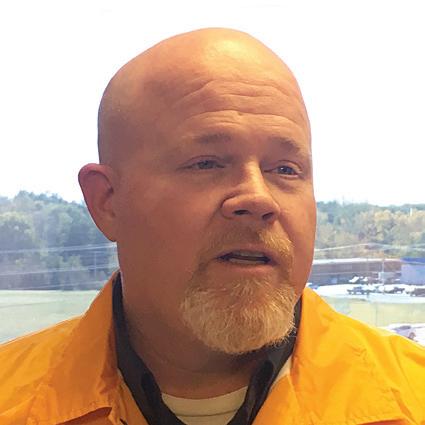
Follow the latest Illinois Baptist news






Disaster Relief, we want to help you physically,” she said in Taylorville. “But we’ve not done our job if we have not also done something to help you spiritually.”
After Sockel made his decision to trust Christ, the team talked to him about church, Kragness said, telling him “the name above the door of the church is not as important as what’s going on inside it.”
“But he did tell us he thinks he wants to look for a Southern Baptist church because he’d like to do Disaster Relief,” she said.
Teams serving in Taylorville have completed 35 jobs so far. Volunteers are cutting limbs, removing debris, and putting tarps on roofs. For more information about the response in Taylorville, e-mail RespondIB DR@gmail.com. To donate to Illinois Baptist Disaster Relief, go to IBSA.org/dr.

In states hit by hurricanes
Just before tornados swept across central Illinois, Disaster Relief volunteers from the state completed a long season of hurricane relief in Florida and North Carolina.
Illinois Baptist Disaster Relief (IBDR) volunteers put thousands of miles on the road traveling south and east in the wake of Hurricanes Florence and Michael.
“Illinois saw key partnerships develop during the hurricane season this year,” said IBDR State Coordinator Dwayne Doyle. “We partnered with Missouri in a significant way as we responded together in locations in both North Carolina and Florida. We served with Kentucky Baptists on one of their kitchens in North Carolina. We also served North Carolina Baptists for over two months in Lumberton.”
“We sent 12 or more teams to both North Carolina and to Florida,” Doyle added. “Chaplains, tree cutters, and flood recovery teams served the Lord well. We were happy to rejoice with several who found hope in Jesus as they were served by Southern Baptists.”
Doyle said it was also a significant year for the state’s mass feeding teams. “We were able to mobilize mass feeding teams to both states as well. This is the first time in several years that we participated in mass feeding of survivors.”
Prior to the Dec. 1 Taylorville tornado, IBSA volunteers had worked 16,817 hours responding to the hurricanes, and to flooding in Illinois and Iowa. They recorded 769 gospel presentations, distributed 1,341 gospel tracts and 937 Bibles, and witnessed 15 people accept Christ as Savior.
An IBDR team from the Heartland Baptist Network was the last Illinois team to serve in Lumberton, N.C., completing chainsaw work in early November before work transitioned to the recovery phase. In late November, teams from the Winthrop Harbor area, Heartland Network, and Kaskaskia, Salem South, and Williamson Associations wrapped up IBDR work in Bristol, Fla., for 2018.
Known for the yellow shirts they wear, the Illinois volunteers were joined for the first time by “green shirt” volunteers. Sarah Maddison, granddaughter of IBDR volunteers Don and Jan Kragness, and Andrew Cairel, son of Pastor Derrick and Angie Cairel of Liberty Baptist in Harrisburg, joined recovery teams in Florida in November. The high schoolers completed the required seven hours of training including DR 101.
For more information about Illinois Baptist Disaster Relief, go to IBSA.org/dr.
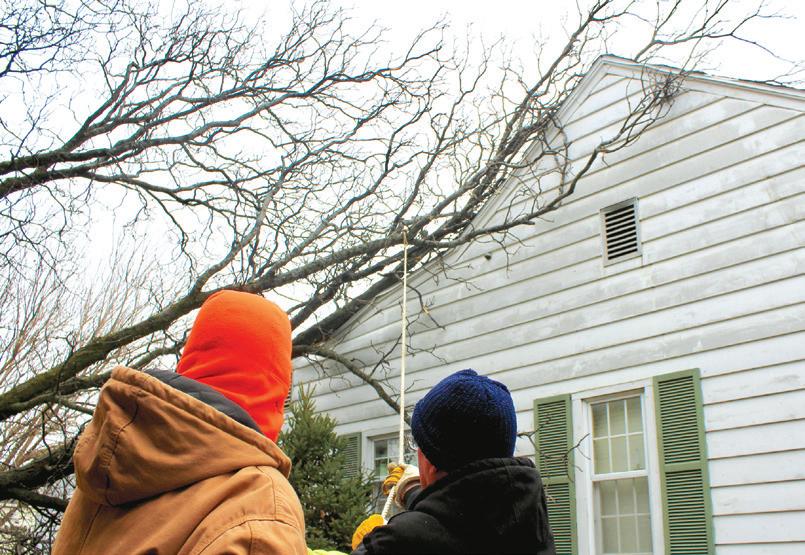 – Lisa Misner
– Lisa Misner
Houston | President George H.W. Bush, who died Nov. 30 at age 94, is being remembered by Southern Baptists who knew him as a “warm,” “cordial” man who “felt right at home with people who loved God and his Word.”
Bush held the U.S. presidency from 1989-93 following eight years as vice president. He is the last president to address the Southern Baptist Convention annual meeting in person.

Southern Baptists in Puerto Rico celebrated nine new churches at their annual meeting in November (photo above). The meeting was the first since 2016. Last year, Hurricane Maria and its aftermath cut church attendance in Puerto Rico by one-third. With the new churches, there are now about 80 SBC congregations in Puerto Rico. Illinois Baptists will work with church planters in the U.S. territory through two mission trips planned for 2019.
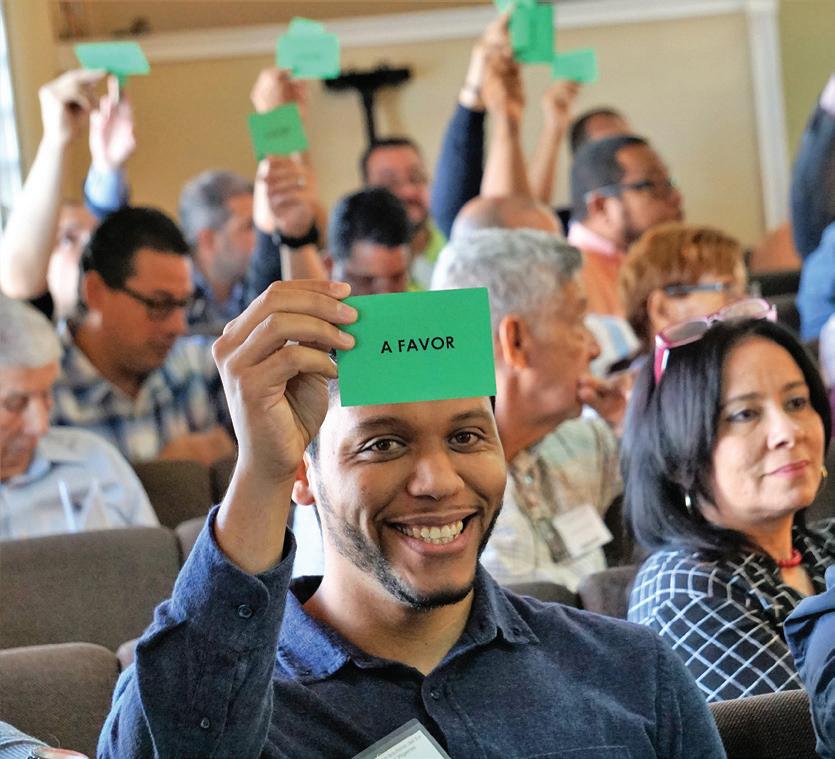
First Lady Melania Trump spoke at Liberty University in Virginia Nov. 28 about the country’s opioid crisis. “I know college is a time to build your independence, experience things on your own terms, and make decisions on your own behalf,” Trump told students. “I am here to remind you that some of those decisions, though they may seem minor at the time, could negatively impact you for the rest of your lives.”

Ethics and Religious Liberty Commission President Russell Moore expressed his and other evangelicals’ opposition to a proposed tax on churches in a Nov. 22 op-ed piece in The Wall Street Journal

The ERLC—joined by 32 other organizations—sent a letter to leaders of two congressional committees asking them to rescind before 2019 a provision in the Tax Cuts and Jobs Act, which took effect this year. Without repeal, the cost to the charitable sector would be $1.7 billion over 10 years, the nonprofit organizations said in the letter. The provision—Section 512(a)(7)—requires houses of worship and non-profits to pay a 21% tax on such employee benefits as parking and transportation.
“Taxing houses of worship is deeply unAmerican—no matter how large or small the tax burden,” Moore wrote. “...As the Founders understood, the power to tax is the power to destroy. Tax laws don’t exist to give special privileges for religious organizations. They are meant to recognize that, unlike in other places and at other times, the state here doesn’t regulate, or subsidize, the worship of God.”
– Baptist Press, Christianity Today, Wall Street Journal
“At my invitation in 1991,” thenSBC President Morris Chapman told Baptist Press, “President Bush spoke to an overflow crowd of convention messengers at the annual meeting in Atlanta. It was very apparent that he felt right at home with people who loved God and his Word, and he was welcomed with numerous standing ovations.”
Bush’s commitments to “school choice,” “defense of the unborn” and “attendance at public worship” during his presidency, Chapman said, “were not a matter of political expediency.” They were “consistent hallmarks of a man of principle, faith, and dignity.”
Bush’s 17-minute address to the SBC in 1991 touched on religious liberty, the sanctity of life, and the need to strengthen families, among other topics. But Bush became visibly emotional, fighting back tears, only when he began to speak of prayer, describing how he sought God during the Persian Gulf War of 1990-91.
“For me, prayer has always been important, but quite personal,” Bush said. “You know us Episcopalians. And like a lot of people, I worried a little bit about shedding tears in public for the emotion of it. But as Barbara and I prayed at Camp David before the air war began, we were thinking about those young men and women overseas. And I had the tears start down the cheeks, and our minister smiled at me. And I no longer worried how it looked to others...We realized that in prayer what mattered is how it might have seemed to God.”
Bush also spoke to Southern Baptists about the collapse of the Soviet Union, which culminated six months later. Bush said, “Places of worship long stood silent and subdued, forced underground by the iron fist of the state. But now, churches and synagogues and the mosques buzz with life, reclaimed by the people, joyfully emerging to proclaim their faith anew.”
Jerry Rankin, International Mission Board president from 1993-2010, told BP he feels an “awesome sense of the providence of God” when considering Bush’s role in the Soviet Union’s collapse and the gospel’s subsequent advance in the region.
Rankin said, “an open door to missionary presence” emerged in Eastern Europe, and the region’s churches “unleashed their potential,” carrying out “a massive harvest and proclamation of the gospel.”
During his 1988 presidential campaign, Bush met with three dozen evangelical
leaders, including Chapman, then-immediate past SBC President Adrian Rogers and then-SBC President Jerry Vines, BP reported. During his time as president, he met with Vines in the Oval Office.
Vines told BP, “He was welcoming, warm and cordial. The privilege to pray with and for him was very special to me.”
Richard Land, who became executive director of the SBC’s Christian Life Commission in 1988, said he considered the possibility of becoming a member of Bush’s administration. Land was called to the CLC, but he went on to meet with Bush on several occasions. “I always found him to be very courtly, very well-mannered, an almost patrician presence,” Land said. “When you think of a president, you kind of like to think of a guy like George Bush.”
‘We’re going to heaven’
Evangelist Billy Graham may have been the Southern Baptist with whom Bush was most comfortable discussing faith. Bush and Graham vacationed together and attended church together on occasion, and Bush sought Graham’s spiritual counsel for his children.
Bush advisor Craig Fuller said there were seasons of Bush’s life in which it seemed “Billy Graham was the one person he was communicating with, and talking to, about his faith,” according to the book on Graham “The Preacher and the Presidents.”
Bush assessed his own faith in his 1988 book “Man of Integrity,” addressing whether he had been born again. “If by ‘born again’ one is asking, ‘Do you accept Jesus Christ as your personal Savior?’” Bush wrote, “then I could answer a clear-cut ‘Yes.’ No hesitancy, no awkwardness. But if one is asking, ‘Has there been one single moment, above any others, in which your life has been instantly changed?’ then I can’t say that this has happened, since there have been many moments.”
Before he died, Bush asked his friend and former secretary of state, James Baker, “Where are we going today?” USA Today reported.
When Baker replied, “We’re going to heaven,” Bush said, “Good. That’s where I want to go.”
Herbert Walker Bush, 1924-2018
A man of character
41st president is remembered as a friend of Southern Baptists1991 SPEECH – Bush was the last president to address the Southern Baptist Convention in person. MOORE
Christmas gift-opening for our family is a seasonal experience of merry mayhem! The usual gathering of 16 adults and children is a large-sized event for our family room. We fill up the couches and chairs and use all the floor space as well, but still have to spill over into the dining area to accommodate everyone. I just have to keep remembering that it was my wife, Monique, who wanted this large family. But everyone knows that I, too, consider this one of our greatest blessings.
Monique has tried numerous approaches over the years for this time of giving and receiving. We started out opening only one gift at a time (and still prefer this!), but in these last years we have allowed the grandchildren to open their large Christmas bags of gifts at their own frenzied pace in order to deal with their exuberant impatience. It still seems that after the paper has found its way into the recycling bag, there are some eager ones waiting on the adults who are passing and sharing their gifts with each other. With a pile of unwrapped gifts strewn before them, our “near perfect” grandchildren can be heard pleading and even demanding, “Is that all there is?!”
There is a letdown after the last gifts are opened and all the boxes, wrappings, and bows have been processed. The tree looks lonely without packages teeming under its ornamented boughs. Adults feel relief that it is over but secretly long for the feelings of anticipation they had at the start of the season. The declaration that “Christmas is over” brings a certain disappointment with the acknowledgment.
The old man and the Seed Simeon and Anna welcome the infant Messiah in this rendering in stained glass. A lifetime of anticipation is met with a moment of delight. Then what?
Luke’s Gospel is rich with details surrounding the first Christmas: angelic announcements to Zechariah, Mary, and the shepherds. It is the latter who are blessed to follow the angel’s directives to Bethlehem. After finding Mary and Joseph, these lowly shepherds are the first to see the baby lying in his manger bed. With great joy that night, they return to their fields and flocks glorifying and praising God on their way.

Most families conclude the reading of the Christmas story with the shepherds’ return, but Luke, the historian, is not ready to wrap up his thrilling account. He wants all his readers to wait because the story of Christmas is far from over. The scene shifts to the temple 41 days later and focuses on two saintly seniors who, with hope-filled lives, are waiting for the coming Christ.
One of these is Simeon, who, with prophetic insights that could have only be revealed to him by God himself, sings out this part of the Christmas story to all who are waiting for more. Within this prophecy, there is a musical message of singing praise, stumbling rejection, the all-important message of salvation for everyone, and even a surprising finale of sadness and sorrow.
The Singing: A sight to celebrate
“I have seen the One who was promised!” must have startled many who witnessed the crescendo of praise from the old prophet. How many who heard the old man sing this out could have thought he was a little tipsy in his prophetic merriment? How could anyone see in this vulnerable baby boy, the son of peasant parents, the Promised Deliverer? These young parents could only afford a humble and modest sacrifice at his dedication. Israel was expecting a prominent and proud warrior who would restore glory to the nation once again. Surely, many observers concluded this baby could not be the son of David, the hoped-for Messiah of God.
Simeon was so convinced by what he saw in the child that he was now ready for the next chapter of a peaceful end to his life. The promise of God was fulfilled. He had seen the Messiah.
What would Christmas be like without music? Musical programs abound during the holidays, rekindling Christmas memories. Luke’s Gospel account has even been put to poetic harmonies. Throughout church history, liturgies have been written and chancel choirs have been singing the canticles of Mary’s Magnificat, Zechariah’s Benedictus, the angels’ Gloria and Simeon’s Nunc Dimittis (Latin for “now let your servant depart”). Community and church choral performances at this season become excellent occasions for inviting seekers to experience these Scriptural songs. More importantly, they allow these friends to hear the good news of the Christmas story.
As the mood swings with this old man’s continued prophecy, Simeon now predicts there will be a stumbling resistance in this child’s future.
The Stumbling: Rise and fall Jesus was a polarizing figure in his time. Some would gladly welcome the Son of Man, and others would vigorously oppose him. Those rejecting him would say he was not their kind of Messiah. He challenged the assumptions of his enemies. They wanted a revolution of power to overthrow their oppressors and establish an earthly kingdom of dominance and glory for Israel. Jesus would come to rule over human hearts, live his life in selfless service, and die on a cross as a sacrificial lamb for the sins of the world. The opposition would declare, “Not my kind of Messiah!”
We live in a culture that speaks about and even practices spiritual things. However, these beliefs are more aligned with eastern religions such as Buddhism that emphasize self-help. Engaging people readily talk about their own ideas of the spiritual realm, but it is increasingly clear that many of them do not really know what Christianity is all about. It seems that too many individuals today want to design a god in their own image. They vigorously defend the need to love, respect, and accept others, but they are repelled by the God who holds them accountable and confronts their sin. More and more will even dare to claim they do not sin and don’t need a savior! Their stumbling over Christ is our cultural challenge in witnessing.
For centuries, Israel hoped for a Messiah who would deliver them from Roman oppression and restore the glory of their nation. Even Jesus’s disciples zealously shared this idea of Messiah. Many who saw in him hope for the future, however, turned against him when he spoke of suffering and death on a cross. They stumbled over what he was accomplishing in their presence. They refused to believe in him.
Simeon’s prophetic song predicted this child would be a light and salvation to the nations. He would expose the darkness of man’s unbelief and futile attempts to live without God. He would challenge assumptions and there would be resistance. But like Simeon, there would be many in the world who would accept Jesus and follow him into eternal life.
On this occasion of happiness and joy at the prophet’s celebrative praising, there follows a surprising prediction of great grief and sorrow for this young mother.
It is almost ironic that a season like Christmas, so full of joy, could also have a mix of grief and sorrow; however, everyone who has lost a loved one to death can say this is true. There is a letdown and sadness for many at this season when loved ones are no longer with us at family gatherings.
Mary must have been taken aback by Simeon’s painful pronouncement. The coming opposition to Jesus would result in a stabbing grief like a sword piercing her own heart. Mary, who had treasured and pondered many things at Jesus’ birth, no doubt would leave the temple that day thinking deeply about the perplexing prophecy of this devoutly righteous man.
Simeon is a man on tiptoe, wide-eyed and watching for the one who will come to save Israel. Studying each passing face.
Staring into the eyes of strangers. He’s looking for someone. He was waiting forwardly. Patiently vigilant. Calmly expectant. Eyes open. Arms extended. Searching the crowd for the right face, and hoping the face appears today.
– Max Lucado, in When Christ Comes: The Beginning of the Very Best
It is sad to think, and reflects a very shallow understanding of Christmas, that for many this season is only a time of gift-giving and receiving. The nation’s retailers project the average American will spend around $900 this Christmas on holiday presents and candies. The Christmas season alone has become a $500-billiondollar juggernaut of sales for the economy. These businesses with accounts in the red count on Christmas profits to put them back into the black.
It is surely time for Christians to say, “Wait a minute! There is more to this season!” The truth must be told that if this season is only about sharing material gifts, we will feel a great letdown after the credit card bills start coming in January. But there’s good news! The baby Jesus came for a greater reason. He came to forgive our sins through his suffering death on the cross and provide salvation for everyone who will put their faith and trust in him. Unless we are convinced of this, we will miss the whole point of Christmas.
imeon took him up in his arms, praised God, and said, Sovereign Lord, as you have promised, you may now dismiss your servant in peace.
For my eyes have seen your salvation, which you have prepared in the sight of all nations: a light for revelation to the Gentiles, and the glory of your people Israel.

Many of the Jewish faithful saw in the Messiah a hope only for Israel. They had no problem receiving the blessing of God to make of them a great nation. But Simeon’s prophetic song of salvation was more inclusive and offered a broader invitation to all the nations. This salvation would start in Jerusalem, but that would only be the epicenter. From this locale, the gospel would spread to the ends of the earth. The baby whom Simeon held with humble gratitude this day in the temple would grow up to be the Savior of the whole world!
During this season of giving to international missions, those of us who have received Christ know that we have a global missions mandate to share the good news of Christ our Lord with everyone on earth. The annual Lottie Moon Christmas Offering is a partnership among Southern Baptists to give to make this mandate a reality around our world by funding church planting and the making of disciples. It is projected that there are 2.8 billion in our world who have little or no access to the gospel. For an individual, this task would be impossible, but working and giving together, we can make an everlasting difference in people’s lives.
Some may not see the point of sharing the Christmas story with unchurched family and friends. Yet it remains that when we do get the message and the “reason for the season” to the forefront of our witness sharing, we see that the gospel does impact the lives of those who hear it. Simeon understood what God was doing the moment he saw the infant Jesus. Let’s give the Holy Spirit something to work with in our witness by sharing the good news with someone this season.

Who knows how God will work through an intentional spiritual conversation that simply retells how Simeon had a surprising encounter one day at the temple with a baby boy who would change the world. Through those conversations, we just might convince some friends of the need to accept Christ as Savior. Imagine what they will discover as the Lord blesses and takes charge of their lives each day!
You might find yourself thinking, as you follow Luke’s telling of the Christmas narrative through the part about the shepherds, “It would be hard to top that story!” However, Luke interrupts that thought like a stage manager in a theatre drama and directs the next actor forward to stage right, “Simeon! Tell your story!” And Simeon joyfully sings out, “I can top that! I’ve seen the Sovereign Lord’s Salvation with my own eyes! I’ve experienced him face to face!”
There will not be a Christmas letdown if we who have accepted Christ and do see him at the center of this Christmas season, say to our world, “Wait a minute! There is more to this story! Come. Experience Christ! Worship him! Share him with everyone!”
His father and mother were amazed at what was being said about him.
Then Simeon blessed them and told his mother Mary: “Indeed, this child is destined to cause the fall and rise of many in Israel and to be a sign that will be opposed—and a sword will pierce your own soul—that the thoughts of many hearts may be revealed.”

“From all accounts, Chau’s actions demonstrated some serious missiological shortcomings. Had he approached me with his plan, I would have counseled against it. His zeal for evangelism seems to have clouded his judgment. Though I would have advised against this endeavor, fulfillment of the Great Commission (Matthew 28:18-20) means someone must go and tell them.”
“It’s important for Christians to understand it is always right and never wrong to share the gospel with anyone. But methodology is important here. To put the matter bluntly, Chau’s evangelistic method is not the way most modern missions organizations would seek to reach this kind of group.”
– R. Albert Mohler Jr., president of Southern Baptist Theological Seminary ‘Believe the best about him’
“Whatever else is true of Chau, we ought to admire his zeal, especially when so many of us struggle with apathy….It seems God often addresses the church’s apathy by allowing some of his faithful, zealous people to make the ultimate sacrifice. I expect the Elliots, Stams, and Chaus of the world consider that more than a fair trade. And, we ought to initially be willing to grant a fellow believer the benefit of the doubt, to believe the best about him rather than the worst.”
- Tim Challies, blogger, author, and pastor at Grace Fellowship Church in Toronto, Canada
The death of missionary John Allen Chau has sparked arguments among Christians. Some call the young man impulsive, while others admire his commitment to reach unreached people with the gospel. Many are comparing Chau to another missionary killed in South America more than 60 years ago.

On Nov. 17, Chau was reportedly struck and killed by arrows from a Sentinelese tribe living on a remote island off the Bay of Bengal. Born in Washington state, he had been intrigued by the tribe since his teenage years. He chose his college degree to prepare him for his mission. He underwent linguistic training, participated in global missions, refrained from romantic relationships, and later joined the mission-sending agency All Nations.
After arriving in the region in early November, Chau paid fishermen to take him on trips where he attempted to befriend the Sentinelese with gifts, songs, and declarations of Jesus’s love. Chau wrote of his fear in returning to the island for his third visit (and his first overnight one), but reassured himself that the tribe’s eternal lives mattered more. The next morning, when Chau’s companions sailed near the island, they saw his body being dragged on the beach.

 By Bruce Kugler, SBC Evangelist and author of God’s Courtroom
By Bruce Kugler, SBC Evangelist and author of God’s Courtroom
Next Steps addresses:
• Baptism
• Daily Prayer
• Reading the Word of God
• Godly Relationships
• Sharing the Gospel
Bruce Kugler Ministries will distribute packets of 20 booklets to all interested Illinois churches on a voluntary donation basis. All proceeds will be used for evangelism both in Illinois and around the world.


For more information contact: bruce.kugler@bkministries.org or Bruce Kugler Ministries, P.O. Box 350, Sherman, IL 62684
For its striking similarity, Chau’s death has been compared to that of five missionary martyrs in 1956, among them the well-known Jim Elliot. Elliot also devoted his early years to preparing for missions. He and his team sought to evangelize the Huaorani tribespeople in Ecuador. They were killed by warriors’ arrows soon after first contact. Elliot journaled extensively of his desire to reach the lost tribe, and his work was continued successfully after his death by his wife, Elisabeth.
But Jim Elliot was celebrated, while Chau has been criticized.
Wheaton College’s Ed Stetzer said he imagines Elliot would receive very different treatment today. “People are much more negative about missions, partly because of mistakes missionaries have made, such as colonialism, a lack of cultural awareness, and more.”
But, “As Elliot wrote (and Chau experienced), ‘He is no fool who gives what he cannot keep to gain what he cannot lose,’” Stetzer wrote. “Here at Elliot’s alma mater, we still believe and train missionaries. To some, that makes us the fools. But…if that makes us fools, we will be ‘fools for Christ.’”
When I was in seminary in the early Bronze age, there was a lot of talk about how pastoral ministry was changing. The church growth movement had taken hold, and many aspiring pastors seemed called to build great seeker-sensitive churches like one of the two model megachurches in suburban Chicago and near Los Angeles.
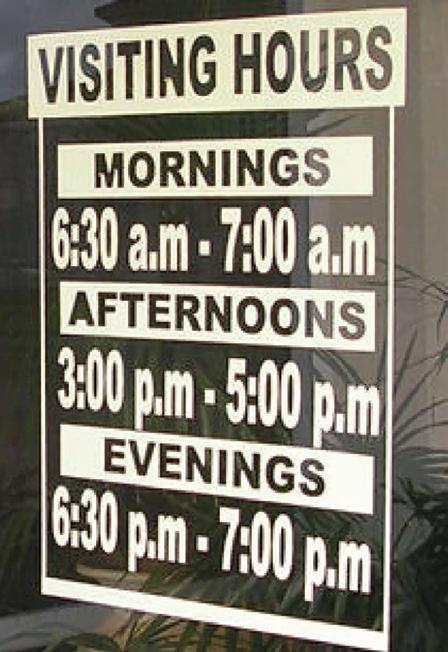
The motivational leaders of the day told us how these pastors weren’t shepherds any longer; they were ranchers. In order to build a great church, the lead pastor (also a new term at the time) must give to others the time-consuming work of congregational care while focusing their own attention on leadership, prayer, and preparation of the Word.
That sounded biblical to me. The first deacons were called so the apostles would be freed for their preaching and teaching ministries (Acts 6:3-4). And Paul was clear in his teaching to the leaders at Ephesus about setting up their ministry: “And he gave the apostles, the prophets, the evangelists, the shepherds, and teachers, to equip the saints for the work of ministry, for building up the body of Christ...” (Ephesians 4:11-12).
That message found a ready audience among seminary students who envisioned fielding a team of highly skilled deacons or elders to visit the hospitals and console the shut-ins. The saints would do the work; the pastors would prepare the saints and dispatch them. And when the budget allowed, we would all add one or two of those new degreed Christian counselors to the staff with expertise to handle the hard cases.
It was a beautiful picture of how it ought to work. Here’s the problem: It didn’t really work.
A philosophy of ministry that “frees” the pastor from contact with church members in their time of need ignores the model of Jesus himself, and it deprives the pastor of his best opportunity to bring meaningful spiritual help when people are hurting.
Jesus chose the word “shepherd” to describe himself. And in his teaching on “the good shepherd” delivered just before his death, the Lord’s heartfelt concern for his flock and his personal contact with them is clear. Jesus might have chosen other words, but he didn’t declare himself the
chief steward or centurion or theologian. He didn’t call himself “lead” anything. He chose the simplest word and the humblest position to describe his personal work—and ours. The word often translated “pastor” is poimen in Greek; it means, literally, shepherd.
In separating the sheep from the goats, the outstanding characteristics of those closest to Jesus and most like him are these: They fed the hungry, clothed the naked, housed the stranger, and visited the sick and imprisoned.
Gone are the days when people stayed in the hospital for a week or two, and the pastor was expected to visit every day. Even major surgeries are outpatient or overnight events. And whether it’s in major metro areas or distant rural places, travel takes time—sometimes several hours roundtrip. People don’t have the same expectations for pastoral care today that they did a genera-
tion or two ago—until they really need it.
Even those who say they don’t want the attention will say afterward they were blessed by a visit from the pastor. These days, it’s one of those things you don’t know you need until you need it.
The recent news that Baby Boomers are returning to church is a two-edged sword. Hooray, they’re coming home! But there’s a lot of them, and they’re getting old. All these seniors will need spiritual care, and I think in a lot of cases, the pastorate is out of practice.

We’ve had the church-growth generation of ranchers—skilled in management and motivation. That has given way to a generation marked by a high view of theology, and their role as chief discipler and guardian of truth. What I hope we see next is the return of pastors, the men of God called to be shepherd, who enjoy caring for the sheep.
I remember during my first fulltime ministry position, we got a call at the church office. A couple had suffered a miscarriage and they wanted the pastor to come to their house. The pastor was new at that church, a recent seminary graduate, and I was the youth minister. “Come, go with me,” he said. “I’m not sure what to do.” When we got there, the couple cried. My new-to-ministry coworker hunted for appropriate Bible verses and offered consoling prayers; I handed them Kleenex. Mostly we just sat there with our sorrowing friends. That’s all they wanted. Just be there.
Eric Reed is editor of the Illinois Baptist.

“Rejoice always, pray without ceasing, give thanks in all circumstances; for this is the will of God in Christ Jesus for you” (1 Thessalonians 5:16–18, ESV).
We cannot control what happens to us in life, but we can control how we respond to what happens to us. The Apostle Paul knew this to be true, so he gives us three ways to live a thankful life.
First, be joyful
The apostles did not encourage believers to live in denial. We are never to deny the fact that trials, tribulations, and adversities bring us pain and grief, but the child of God must recognize that in the midst of trials, tribulations, and adversities, the presence of God through the power of the Holy Spirit gives us reason for joy.
We can rejoice despite our circumstances because God is in control!
Second, be prayerful. The second command to pray is the foundation for the first command of joy and the last command to be thankful. Paul knows that in order to obey either we have to be praying people. Oftentimes our circumstances can cause us to abandon prayer, but if you don’t feel joy, pray! If you don’t see anything to be thankful about, pray! Let nothing stop you from praying!
Finally, Paul tells us to be thankful
It is the will of God that Christians be thankful, but we aren’t commanded to be thankful for everything, we are commanded to give thanks in everything. We cannot control our circumstances, but whatever the circumstance, we have reasons to thank God.
PRAYER PROMPT: Father, we thank you for your promise never to leave us or forsake us. And because of your presence we can be thankful in all things. Thank you for salvation, thank you for life eternal, and thank you for the gift of today. Help us, Lord, to live thankful lives, being grateful for all that you have given us through faith in Jesus Christ our Lord.
It’s time to recover the lost art of pastoral care.
Christmas. The season of joy. Jesus’s birthday. It’s right around the corner!
As believers, we know the real reason for the season is Jesus. This is the day we celebrate our Savior coming to earth to begin his journey to the cross which will give us freedom from sin and shame eternally. But the chaos of the season can overshadow the real reason we celebrate and distract us from the very thing we were put on this earth to do: tell his story.
This Christmas, will you be intentional to share Jesus everywhere you go? Here are some fresh ideas to keep you focused on the gospel:
• Buy some clear or blank ornaments and decorate them with your favorite Scripture verse. Keep a box of them in your car and give them away to people you encounter—at the gas station, grocery store, your kid’s school program, on a family walk, etc.
• Get a stack of invitation cards from your church (or make some yourself) to invite people to your church’s Christmas Eve service or program. So many people are willing to attend a holiday event who might never go to a “church service.” Who are you inviting?
• Host a neighborhood Christmas tea. Invite your neighbors to stop by your home just to celebrate the season together for a few minutes. Present each attendee with a small gift, card, and/or invitation to your church or small group.
• Take time to train your kids how to tell people about Jesus. It can be as simple as telling their teachers and friends that we celebrate Christmas because God came down to us and made a way for us to know him.
It’s simple in this season to share Jesus, but it’s also simple to forget to share him. How will you share him everywhere you go this Christmas season?
Autumn Wall, online at autumn wall.com, is an author, speaker, worship leader, pastor’s wife, and mom of three in Indianapolis.
Long-time IBSA church leader Dennis Blankenship died November 13 at the age of 87. Ordained to ministry in 1952, he was instrumental in starting several churches in Illinois and also pastored congregations in Beecher City, Heyworth, Farmer City, Girard, Springfield, Gillespie, and Lincoln. Most recently, Blankenship served as senior adult minister at Tabernacle Baptist in Decatur. He is survived by his wife of 64 years, Marian; four children; and 38 grandchildren and great-grandchildren.


George Hendricks, pastor of Main Street Baptist Church in Braidwood for 54 years, died November 28 at his home in Corpus Christi, Texas. Hendricks, 89, also worked as a master electrician during his ministry. He retired from the Braidwood church in 2011. He is survived by his wife of 67 years, Geraldine; six children; and 17 grandchildren and great-grandchildren.
Former IBSA pastor Scott Kelly died November 1. Kelly, who was currently on staff at a church in Missouri, previously pastored Evanston Baptist Church and worked in campus ministry at Northwestern University. He is survived by his wife, Megan, and their three children.

Roderick D.
“Rod” Latta died October 15 at the age of 93. Latta was IBSA’s director of church music from 1967 to 1977, and also served churches in Texas and Missouri. He is survived by his wife, Bonnie; eight children; and 36 grandchildren and great-grandchildren.


After a two-year struggle with cancer, Donna Reed was called home on October 18. The wife of Illinois Baptist editor Eric Reed, Donna was a valued partner as a pastor’s wife, as they served in churches in New Orleans, Chicagoland, and Springfield. She taught Bible study classes and led missions education and involvement for women and youth across many decades. She was a member of Western Oaks Baptist Church in Springfield.
Suzi Stuckey, 87, died November 21 in Ft. Meyers, Fla. She was the wife of Bob Stuckey, former director of lay mobilization for IBSA. The Stuckeys also served as Southern Baptist missionaries in Indonesia, and in Iowa, where Bob directed what would become the Baptist Convention of Iowa. Along with her husband, Suzi Stuckey is survived by three children and 13 grandchildren and great-grandchildren.


Contributions received at IBSA by 9 a.m. on Jan. 4, 2019, will be included in 2018 giving. Gifts received after this date will be credited as 2019 giving. Reminder: Remittance forms filled out with designations should be sent in along with checks throughout the year. If you use a bank or service to produce your checks, make designations in memo line. Contact Kendra Jackson at (217) 391-3111 or e-mail KendraJackson@IBSA.org if you have questions or need assistance.
Find more information on ministry positions at IBSA. org/connect. Send NetworkiNg items to IllinoisBaptist@IBSA.org.
Broadview Missionary Baptist Church is seeking a full-time pastor to shepherd the congregation. Interested candidates should visit broadviewbaptist.org for a job description and additional information regarding the resume submittal process.
Park Avenue Baptist Church in Mt. Vernon seeks a bivocational pastor Submit resumes to parkave@mvpabc. net. For more information, call (618) 316-8965.
Pastor Dale Burzynski celebrated 50 years of service at Ina Missionary Baptist Church in November. Burzynski, a retired teacher who served many years as a bivocational pastor, is IBSA’s longest-serving pastor in the same church. He was recognized at the IBSA Annual Meeting in Maryville, and he and his wife, Judy, were celebrated at an open house at the church Nov. 4.
Pastor Dave Rogers celebrated 20 years at First Baptist Church, Patoka, this fall. At a celebration Oct. 28, IBSA Executive Director Nate Adams (left) presented a plaque of appreciation to Rogers, pictured with his wife, Karla

Is God calling you to the Missouri Ozarks and lake area?
First Baptist Church (SBC), Gainesville, Mo., is seeking a pastor. Send resumes, CD/DVD to: Pastor Search Committee, c/o First Baptist Church, P.O. Box 627, Gainesville, MO 65655, or e-mail gainesvillemofbc@gmail. com with sermon link.
First Baptist Church, Dupo, seeks a parttime worship leader to lead two worship services on Sunday, along with directing the adult choir. Send resumes to FBC Dupo, P.O.Box 219, Dupo, IL 62239, or e-mail resumes to fbcdupo@htc.net, Attention: Pastor.
Weldon Baptist Church seeks a bivocational pastor. To send a resume, mail to Beckie Shreve, church clerk, at 839 Sunset Dr., Lincoln, IL 62656.

January 1-13
Resources: SBC.net/inallthingspray
January 12
What: Training for worship leaders, vocals, adding percussion, and keyboard
Where: Temple, Centralia; 9 a.m. – noon Register: IBSA.org/worship
January 17, 24
What: Valuable tax info for current and retired ministers, treasurers, and other church leaders
Where: Jan. 17: IBSA Building, Springfield; Jan. 24: Marion (location TBA) Info: TammyButler@IBSA.org
January 20
Sunday
Resources: ERLC.com
January 22-23

February 16
What: Learn how to use worship technology to unite believers in corporate worship. This year’s focus is on sound, worship leading resources, video projection, Ableton, Loop Community, social media, and more.
Where: IBSA Building, Springfield; 8:30 a.m.-1:30 p.m.
Cost: $15 per person, includes lunch Info: IBSA.org/worship
February 22
QShould I stop making contributions to my 401(k) account for a year in order to save up an emergency fund? Thanks to you, I’m 33 and debt-free.
ACongratulations on being debt-free at such a young age! I appreciate the credit, but the truth is I just pointed you in the right direction. You made the sacrifices and did all the hard work. I’m really proud of you!
What: Time of reflection and refueling for pastors
Where: IBSA Building, Springfield Info: LindaDarden@IBSA.org
February 23, March 2
VBS Clinics
Where: Feb. 23: FBC Carterville, March 2: Chatham (additional clinics scheduled later in multiple locations)
What: Training, ideas, and inspiration for 2019 Vacation Bible School Info: IBSA.org/kids
February 28
iConnect: IBSA/Pastors Meet-Up
What: The premier mid-winter gathering for Illinois Baptist leaders from every region; leaders will learn with and from one another how to expand their leadership skills, and use them to help grow effective churches in our unique context

Where: IBSA Building, Springfield Register: AubreyKrol@IBSA.org
February 2
What: View a rebroadcast of this year’s men’s conference at one of multiple locations
Where: Northside, Dixon; Calvary, Monticello; Woodland, Peoria; Living Faith, Sherman; Bethel, Vandalia; West Side Missionary, Mt. Vernon; Second, Marion; Collinsville Community

Cost: Early-bird registration cost of $15 per person ends Dec. 31; general registration of $25 ends Jan. 25; late registration is $30 Info: IBSA.org/men
What: Introduction to IBSA staff, ministries, training, and opportunities, for pastors and church staff members
Where: IBSA Building, Springfield Info: AubreyKrol@IBSA.org
March 2
What: Skill training for worship leaders, keyboardists, guitarists, and vocalists Where: Bethel, Bourbonnais; 9 a.m. –12:30 p.m. Register: IBSA.org/worship
March 3-10
Annie Armstrong Easter Offering and Week of Prayer for North American Missions
Resources: AnnieArmstrong.com
Yes, my advice is to temporarily stop making contributions to your 401(k) until you save up an emergency fund of three to six months of expenses. It shouldn’t take a year, though, to set aside an emergency fund if you’re debt-free and making decent money at your job. Just make it part of your monthly budget plan, and get that emergency fund set up in a few months.
Here’s the way I look at it. If you don’t have an emergency fund, but you’re contributing to a 401(k), there’s a good chance you’ll end up cashing out your 401(k) if something happens that leaves you with a large, unexpected bill. When you cash out a 401(k) early, you get hit with a penalty plus your tax rate. That’s not a good plan! And that’s just one of the reasons I tell people to have an emergency fund in place before they start investing.
QAre home warranties a waste of money if someone has been following your plan and already has six months of expenses set aside in an emergency fund, plus home insurance?
AHome warranties are a waste of money even if you don’t have quite that much set aside in an emergency fund. I recommend an emergency fund of three to six months of expenses to cover the unexpected things that life will throw at you. This amount of cash, sitting in a good money market account with check writing privileges, will give you easy access in the event of a financial emergency.
I don’t recommend extended warranties of any kind. They’re just not a good deal. You’re better off to self-insure against things breaking down, and putting what would have been profit and marketing dollars for the extended warranty company in your own pocket!
Financial advisor Dave Ramsey is a prolific author and radio host.
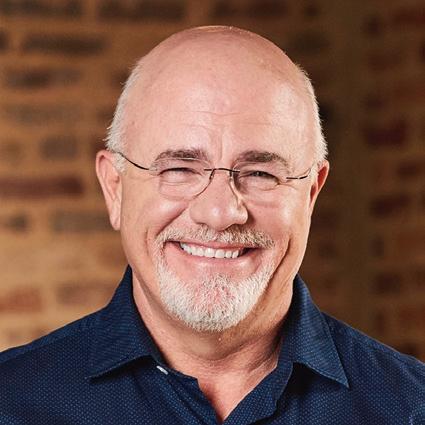
Lose the translation?
QNow that LifeWay has released the Christian Standard Bible, is it time to replace our pew Bibles? Frankly, I was just getting accustomed to the translation we’re using now.
AThe purpose behind pew Bibles is to help guests follow along with the teaching. With so many electronic versions available today, some churches no longer have them. Before your church invests a large sum of money, decide which version would best serve your community and context.
QThe big church across town has a snappy slogan and colorful logo. Should we spend money on creating something like that? If so, how much?
APlease be who you are! There is nothing wrong with advertising, and a colorful logo can be very attractive, but don’t try to be something you are not. The best thing a pastor can learn is that he will not reach every person in his community. Some will enjoy old hymns of the faith, while others will be attracted to contemporary praise music. Your location, the median age of your congregation, style of leadership, philosophy of ministry, teaching style, and even Sunday wardrobe will be determining factors in who is drawn to your church. Be who you are. And be the best at it.
QIs adding a second worship service worth the pain?
AABSOLUTELY! We often forget that bus drivers, life guards, police officers, waitresses, and department store workers can’t always make it to church during the regular scheduled times. Offering additional earlier or later services affords people an option. Churches that are serious about reaching their community with the gospel are willing to stretch their thinking, which might mean multiple worship services, additional Sunday school hours, or in-home Bible studies. The more hooks you have in the water, the more fish you will catch.
Pat Pajak is IBSA’s associate executive director for evangelism. Send questions for Pat to Illinois Baptist@ IBSA.org.

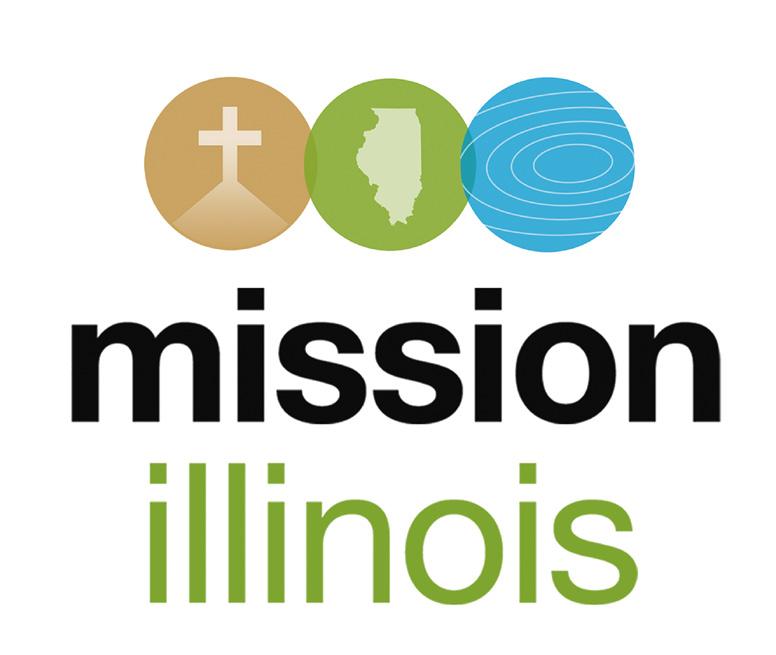
Location: St. Joseph
Focus: Young families
Characteristics: Located east of Urbana, St. Joseph has grown steadily over the years. From the most recent estimates, more than 80% of people here do not attend any religious gathering.

Prayer needs: Pray for the gospel to be sown. Pray for a person of peace to be found that can help make connections in the community. Pray for a planting team to be developed.
Here in the giving season, it seems especially appropriate to ask how’s our giving to God? Generous Church reports we’re giving less today than during our nation’s greatest financial crisis.

Tithers make up only 10-25% of a normal congregation in the U.S.
Only 5% of the U.S. tithes, with 80% of Americans only giving 2% of their income.
Christians are only giving at 2.5% per capita, while during the Great Depression they gave at a rate of 3.3%.
Financial advisor Dave Ramsey tells pastors to preach first on getting out of debt, then establishing a budget, and finally, addressing tithing. Ramsey told Southern Baptist pastors at the Dallas Convention:
“When you stand up in front of your congregation, you’re looking at a large number of people who do not have the ability to handle their money….Quit preaching tithe lessons to broke people. Let’s teach them how to get on a budget. The natural byproduct of a Jesus lover when they have money is giving.”
– With info from Christian Post
“…Seven-in-ten Americans mention their family as a source of meaning and fulfillment, and a similar share say…family provides ‘a great deal’ of meaning in their lives.”
– Pew Research
Searching for significance
Pew Research asked U.S. adults what provides them with a sense of meaning:
51% Family
34% 23%
20%
19%
19%
16%
11% 13%
Career Money
Spirituality and faith Friends
Activities and hobbies Health
Home and surroundings